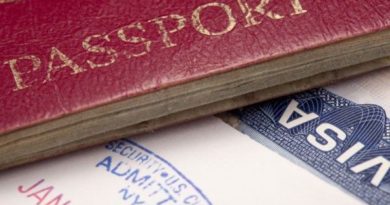HEADLINE-CYBER CRIMES | PETALING JAYA: Cyber harassment bane

PETALING JAYA: There has been an increase in online sexual harassment involving minors, with 1,464 cases reported in 2022 compared with 1,272 in 2021, said Women’s Aid Organisation (WAO) senior advocacy officer Zati Hanani.
She said the United Nations (UN), through its entity UN Women, reported that in 2021, up to 88% of women in Asia and the Pacific region experienced online violence.
“The victims, who are mostly adolescent girls and those from vulnerable backgrounds, are being affected disproportionately,” she added.
In 2021, the Malaysian Communications and Multimedia Commission (MCMC) reported that they received 6,598 public complaints related to online harassment.
“The complaints were a mix of online bullying, sexual harassment, threats and causing fear.”

According to the law, sexual harassment is a conduct that is sexual in nature, unwanted, offensive, humiliating or threatening, and it could be in the form of verbal, non-verbal, visual, gestural or physical abuse.
Zati said cases of online sexual harassment also fall under a term called online gender-based violence (OGBV), which is an extension of gender-based discrimination that women and girls face regularly.
She also said WAO is working closely with KRYSS Network, a voluntary body, for a campaign called “Push Forward”, which is a series of town hall meetings with the objective of ending OGBV.

“We are working on organising these meetings throughout Malaysia.”
She added that the technology dimension also creates complications as perpetrators can be more persistent and are also able to gather information on their targets.
“Existing measures by the government to address OGBV often fall short. In Malaysia, while there are laws that criminalise OGBV, gaps in the enforcement of laws pose a barrier to survivors’ access to justice.”
She hopes that through the town hall meetings, she will understand the lived realities of survivors and their experience accessing justice.
“Since 1982, WAO has provided free shelter, counselling and crisis support to women and children who experience abuse,” she said, adding that WAO managed to reach 4,000 survivors through their hotline, providing critical information about their rights and options.
She hopes that the society will stop victim blaming as “this will only make the perpetrators feel supported and encouraged.”
Zati said the WAO collaborates with different government agencies through their involvement in different working committees such as the Domestic Violence Committee.
She added that WAO is working hand in hand with their stakeholders to improve access to justice, especially for OGBV issues in order to be more effective and survivor-centric.
“WAO believes that everyone has the right to feel safe online,” Zati said but added that there are only a few steps the organisation can take to improve their safety online, such as changing users’ privacy settings.
She advised victims of harassment to document the incidents.
“Keep a record of all incidents related to harassment, including text messages, emails, social media interactions and physical encounters.”
She said the documentation can be crucial as evidence to lodge a report and prevent further harassment.
“It is important to note that no one should live in fear of being active on social media or be blamed for having a digital presence.”
Jaden Raul

@[email protected]


 Memento Maxima Digital Marketing
Memento Maxima Digital Marketing







